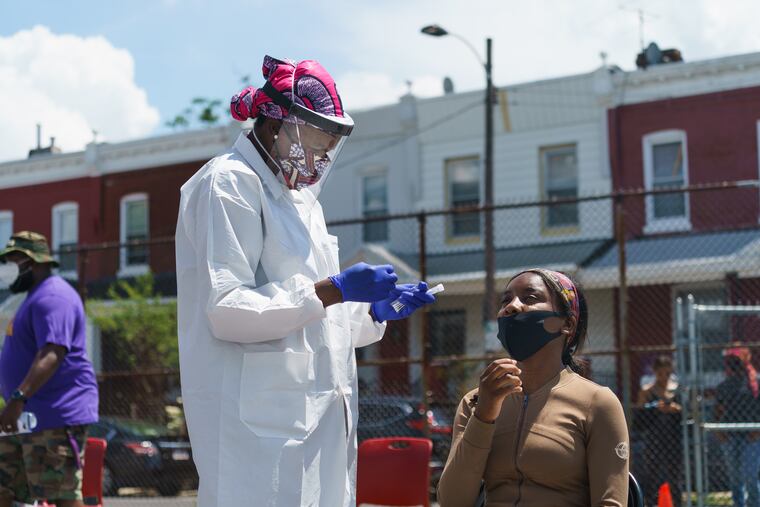William Penn Foundation grants to help Philly youth and summer programs reopen
The William Penn Foundation approved more than $2 million worth of new grants to Philadelphia groups, with much of the money focused on helping youth and summer programs reopen safely amid the coronavirus pandemic.

The William Penn Foundation said Tuesday that it had approved more than $2 million worth of new grants to Philadelphia groups, with much of the money focused on helping youth and summer programs reopen safely amid the coronavirus pandemic.
The grants, totaling $2.6 million, will fund early childhood education, youth summer programs and employment, and food access. They are the latest grants the Foundation has expedited in recent months to address COVID-19 in Philadelphia.
“We know that much work is needed to ensure that all Philadelphians share in the recovery from COVID-19,” Janet Haas, chair of the foundation’s board, said in a statement. “These initial grants signify our commitment to helping ensure that all Philadelphians have the opportunities and resources needed to thrive.”
The latest grants come amid global protests against systemic racism. The foundation said those protests raised the stakes for fostering an economic recovery inclusive to all Philadelphians.
“Certainly, the murder of George Floyd and the events of the last few weeks have brought a sharper focus to what [an inclusive economic recovery] means,” Elliot Weinbaum, the director of the foundation’s Great Learning program, said. He said the foundation is committed to a recovery that is “racially, economically, and socially just.”
Haas said: “‘Back to normal’ is not our goal, nor should it be. We know that our country’s ‘normal’ was neither just nor inclusive of communities of color.”
Despite a reduced endowment because of the pandemic, the foundation will keep funding this year steady at $117 million. Its three program areas are Creative Communities, which focuses on arts and culture and community access to public spaces; Watershed Protection, which aims to improve and promote clean water in the Delaware River watershed; and Great Learning, which supports early childhood education and college and career preparation.
Weinbaum said the focus in this month’s grants on children and youth is because the public health crisis shined “a spotlight on where there were cracks in the system” of supporting underprivileged youth.
“We know that children in Philadelphia have a disproportionate level of poverty,” he said, “and we know that so many of the programs that support young children were disrupted or ceased entirely during this period, so there is a real need to reconnect. And I think that’s a theme you see running through all of the youth focus grants.”
Groups receiving grants range from the Black Doctors COVID-19 Consortium of It Takes Philly Inc. to the Philadelphia Housing Authority and the Philadelphia Parks Alliance. The aim of the grants is to provide youth and other vulnerable populations the resources and connections they need to be financially stable and mentally and physically healthy, Weinbaum said.
Weinbaum said he anticipates future grants to focus more on the Creative Communities and Watershed Protection programs, as well as other urgent needs created by the pandemic.
“We are interested in ideas coming from our community about relief work that still needs to be done to position our community forward,” he said, “and how that can be done in a way that is sensitive to the past racial and economic injustices that our community has experienced.”